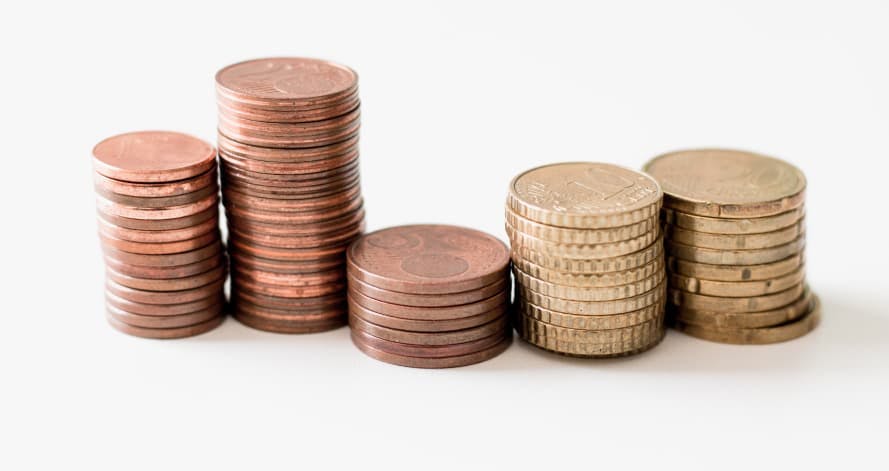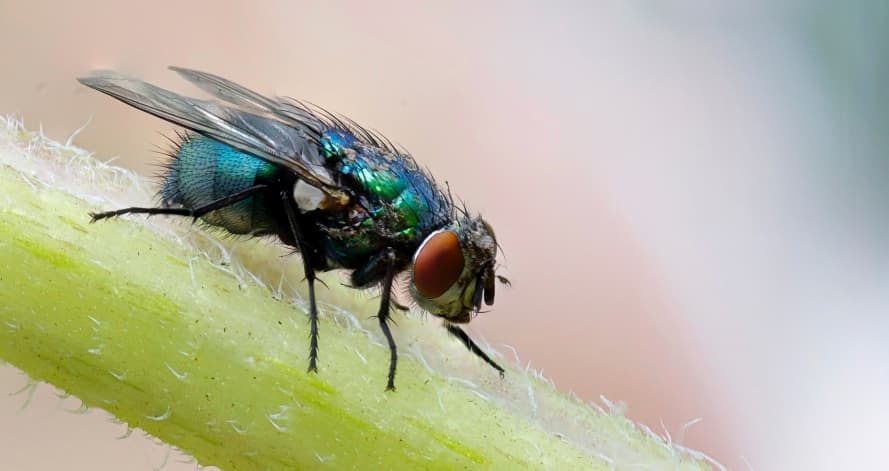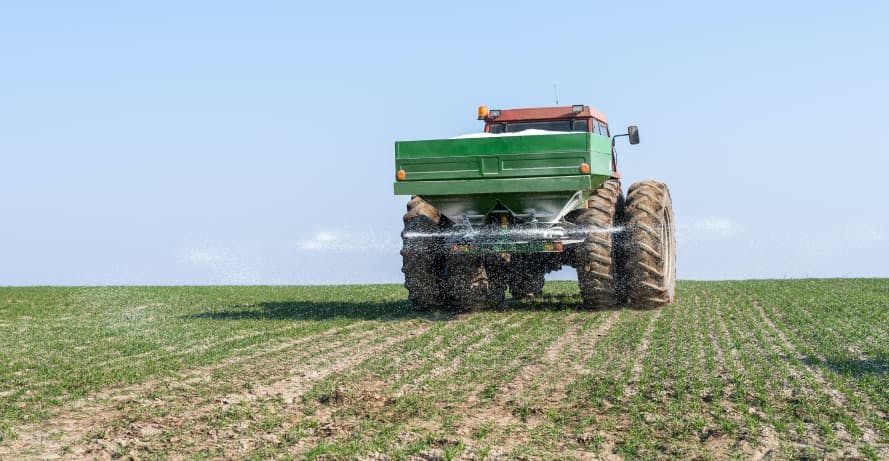ESG / CSR
Industries
How Invasive Species Are Going to Disturb Our Economy



We’re always talking about how global warming will take a toll on our economy – but what about invasive species?
As of 2023, there have been thousands of new invasive species that will have an impact on our economy – but how and why will new life threaten our existing economic system?
In this article, we’ll discuss what invasive species are, how they will disturb our economy, and what we can do to lessen their impact.
What are invasive species?
Invasive species refers to new, previously identified species that are not known to be native to any region of the world. As a result of these invasive species, the world can be threatened in a multitude of ways – seeing as these invasive species often carry unknown diseases or can implicate sectors pivotal to our economy.
However, it is important to note that just because a species is not native to a particular region – doesn’t mean it's invasive. As per the word, an invasive species means that species will intrude or have a negative effect on a component of society – which will have a long-lasting effect on our livelihood.
👉 Recognizable invasive species include mosquitoes carrying malaria, Asian carps, Zebra mussels, and the Asian long-horned beetle.

How could invasive species cost us our economy?
The problem with invasive species is that they will create a ripple effect of problems. In other words, while it may seem that invasive species only have an impact on one area – odds are that area will have a direct link to our economy, too. This can include agriculture, infrastructure, tourism, and healthcare.
For example, when invasive species eat our crops, they aren’t only going to contribute to continued world hunger or food waste – but it will put farmers out of business and negatively affect the agriculture industry. Tourists won’t want to travel to these places out of fear of encountering these invasive species, whether outside, in the food they eat, or while staying at their accommodation.
👉 Did you know that tourism contributes to 10.4% of the world’s GDP? This number is only expected to rise following the pandemic, which means that keeping invasive species at bay is more imperative than ever to our global economy.
However, it’s more than just agriculture and tourism that invasive species could tackle to take down our economy.
For starters, these newfound species could do a number on infrastructure and even ruin properties – such as the Formosan termite – which causes more than a billion dollars worth of damage every year for Americans.
It doesn’t end there. Think of pantry and clothing moths that can ruin a pantry supply full of food or an entire wardrobe. This creates more food waste and exacerbates the possibility for people to replenish their wardrobe with fast fashion.
More examples of invasive species that threaten infrastructure include:
- Nutria: Small, semi-aquatic rodents that can impact functioning streambanks, roadways, and dams. Think of, “Ratatouille” – but instead of reading a cookbook, the rat is weakening vital water systems.
- Tawny Crazy Ants: Nicknamed as the, “raspberry crazy ant” – can ruin electrical work and ultimately cause short circuits and equipment failure.
- Spongy Moths: These moths can create silk webs, similar to spiders, which can ultimately cause damage to trees and compromise property value.
- Silverfish: Even though this invasive species isn’t harmful to humans and aren’t known to carry diseases, they feast on carbohydrates – and can ruin things in your house such as wallpaper, books, and clothing. This could impact the insulation in your home.

Where will invasive species have the greatest impact?
Seeing as invasive species have the opportunity to impact various sectors, and that the amount and kinds of invasive species to come cannot be predicted – it is hard to determine where invasive species will have the greatest impact.
👉 However, invasive species will likely have the biggest impact on agriculture and human health.
For instance, invasive species will threaten crop production – seeing as pesticides already can tamper with a successful harvest season, there is no telling how new, future invasive species will have an impact on crop production. This has already been an issue, with approximately $40 billion USD lost every year from invasive species and various pathogens feeding off of crops.
It would be no easy task to try and eliminate invasive species. Even if farmers took climate smart farming precautions, there haven’t been enough studies on the multitude of various invasive species to conclude if these tactics would be effective in the same way they are for pesticides.
👉 Did you know that farmers use a whopping $60 billion worth of money trying to mitigate pesticides every year?
In addition to this, invasive species could also have an impact on fisheries – with invasive marine species such as the walking catfish and common carp eating nearby fish and their eggs, which cause fish populations to plummet and ultimately fishermen to suffer.
As a result of invasive species – even Europe’s third largest lake, Lake Constance, has been close to shutting down fisheries due to dwindling fish populations. This demonstrates how invasive species can cause a great deal of damage to existing ecosystems – which are essential to maintain in the midst of climate change.
👉 However, what is most alarming about invasive species is their potential to have an impact on human health. This is because invasive species, such as mosquitoes, can carry diseases without simple cures such as the zika virus and the dengue virus.

How are invasive species spread?
Even if it is unintentional, invasive species are often spread from human activity.
This is because our world is more globalized than ever before – with avocados being shipped to the US from Mexico and people getting on a plan with their dirty hiking boots, there is ample opportunity for invasive species to spread.
In fact, upon landing in Queenstown, New Zealand from Melbourne, Australia – the captain made it a point to announce that we would be delayed as a fly had made its way into the cabin before departure.
👉 While this may seem trivial to some, the exact species of the fly was unknown – and it is this type of stringent behavior that stops invasive species from spreading across multiple countries.
However, it isn’t just people that spread invasive species – ships and boats can too, as they may be carrying aquatic organisms in their ballast water or propellers.
Is there a way to prevent the spread of invasive species in our day-to-day lives, even when we aren’t traveling or crossing borders?

How can we protect society from invasive species?
There is currently no way to eradicate or predict the arrival of new invasive species. However, humans can learn to adapt to their existence – which could also indirectly help to fight against climate change.
This is because warm weather, droughts, and floods could all be a perfect storm to elicit new invasive species – such as mosquitoes. If we work to reduce emissions on a global scale, these natural disasters would occur less frequently and potentially decrease the opportunity for invasive species to multiply on a monstrous scale.
👉 It is important to remember that those who live on an island will be most vulnerable to the effects of invasive species health wise, as there will inevitably be less access to resources..
Here are a few ways that we can protect ourselves from the negative impacts of invasive species:
- Make Sure Clothes Are Clean: Walking inside your home after a hike with muddy shoes doesn’t just bring in dirt, but it could bring in invasive species. This is also why it isn’t a bad idea to change your clothes before you go to sleep to prevent insects from nesting into your bed.
- Leave Firewood Be: Seeing as firewood often consists of dying wood, they often attract invasive species that feed off of the remains – so it’s best to leave firewood where you found it to mitigate the spread of insects.
- Make a Smart Garden: Similar to a food forest, which works to maximize the amount of food harvested – seeking to plant various flowers and herbs methodically can help to prevent attracting invasive species.
- Don’t Be a Bystander: If you see a flood of invasive species, don’t just stand there and do nothing – tell someone. Whether it’s in your own home or a hotel room, the longer you wait to treat invasive species – the more difficult it will be to get rid of them.
- Stay Up-to-Date on Vaccines: Even if you aren’t trotting the globe, it isn’t a bad idea to be vaccinated against diseases such as Yellow Fever – in the event you happen to encounter a mosquito carrying the disease. In fact, developments are in the works for mosquito based vaccines that might exist to protect people from all mosquito borne diseases.
Overall, invasive species will continue to threaten our economy – from healthcare, agriculture, and even tourism. This means that it’s up to the human race to outsmart invasive species before they take over, and to adjust our practices accordingly to prevent financial chaos from ensuing.
What about Greenly?
If reading this article about how invasive species will impact our economy has made you interested in reducing your carbon emissions to further fight against climate change – Greenly can help you!
It can be overwhelming to figure out how external factors such as invasive species could have an impact on your business, but don’t worry – Greenly is here to help. Click here to schedule a demo to see how Greenly can help you find ways to ensure your company remains protected from threats such as invasive species.
Greenly can help you make an environmental change for the better, starting with a carbon footprint assessment to know how much carbon emissions your company produces.






